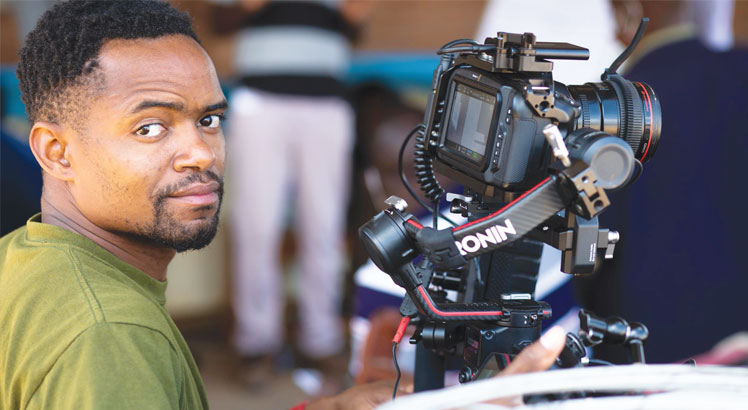The intricacies of film making
The Malawi film industry has over the years seen numerous projects being released. However, movie and series production is no easy feat. There is a lot that goes into their production. Our contributor SANGWANI MDHLULI caught up with cinematographer and film editor Essim Shaibu M’bwana who has, among others worked on series Mushroom Shade and Agent Limwado and movie Misnomer, to gain insights into the behind-the-scenes. Excerpts:

Q: What is the workflow like when preparing for a movie or series project?
A: When preparing for a movie shoot, I go through the script and create a short list. I do technical location scouting, camera tests to make sure everything looks the way it should and I also develop the look of the film.
Q: How is the collaboration like among you, the director and other members to be in line with the intended outcome?
A: The most important part of collaboration is having a listening spirit and being able to communicate clearly with the rest of the team.
Q: On a shooting day, what is the typical day like?
A: On a shooting day, we start by loading equipment, mostly lighting and grips. We test all the equipment a day before, so we arrive on set before the call time and begin setting up for the day’s shoot. We usually shoot three scenes a day, or three pages of script, or about one hour of footage, which consumes around one terabyte of storage. On set, I have people from the lighting department assisting with placing lights. I have a first camera assistant and sometimes a second assistant to help with changing batteries and lenses, slating and pulling focus. I stay in touch with the producer and director to make sure we are capturing what aligns with the director’s vision. I usually share my camera feed wirelessly with the director so they can monitor everything I am capturing.
Q: What is the most challenging part during shooting and how do you handle those challenges?
A: The most challenging part of shooting is running out of time. To overcome that, we compromise on certain shots, but you have to be clever about what to compromise on.
Q: Are there any specific techniques you implore to attain a certain effect or shot?
A: Yes, there are a lot of techniques we use to create different effects like putting Vaseline on the lens filter to create a dream look.
Q: How has the film industry evolved since you started your career? What new trends are emerging?
A: The Malawian film industry has changed a lot. We now have a huge following with Malawians embracing local talent and even people from other countries appreciating our films. The use of artificial intelligence is the new trend, though currently I only use it to visualise concepts.
Q: What advice would you give aspiring filmmakers?
A: My advice to young and upcoming filmmakers is to study film basics as much as possible and also learn the history.
We now have a huge following with Malawians embracing local talent and even people from other countries appreciating our films




